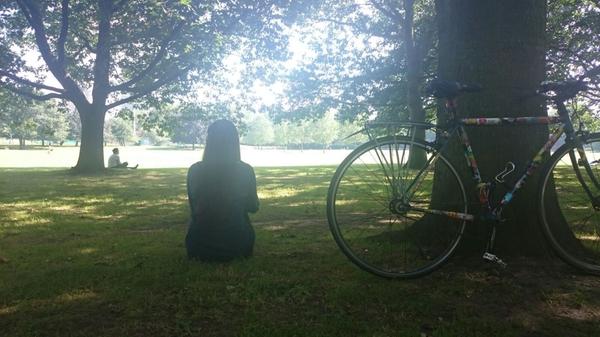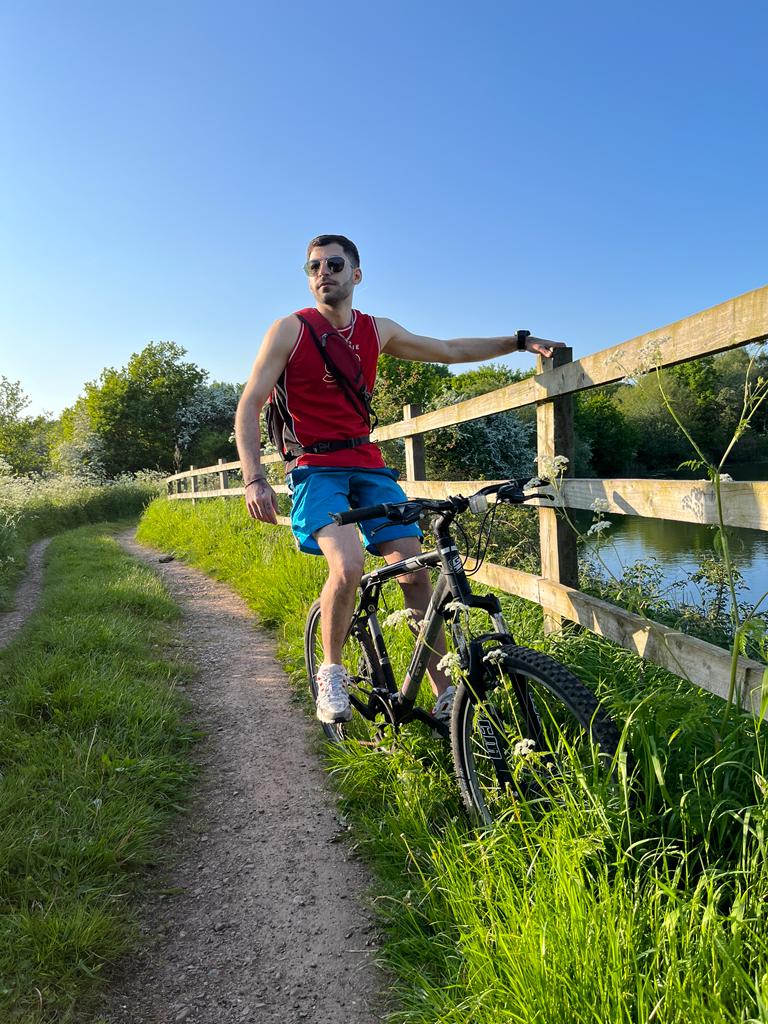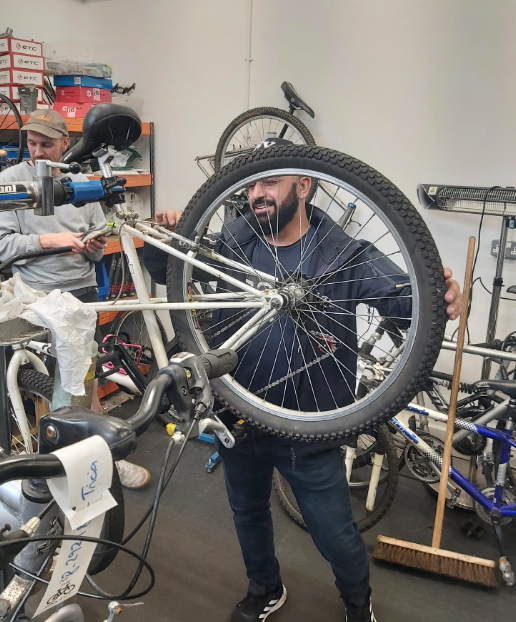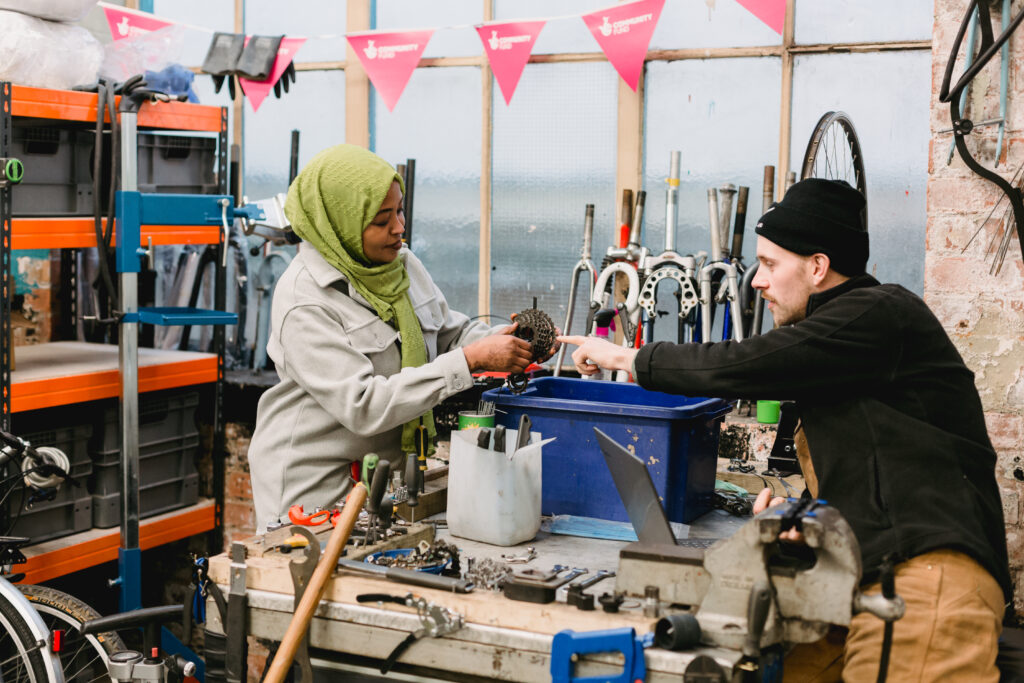Cycling can do lots of stuff for you.
That’s The Bike Project in a nutshell, but also Nadia’s story.
Nadia came to this country from India as an asylum seeker in 2009, but last summer, something new came into her life when a refugee centre in Snaresbrook advertised a cycling course for women.
Over six months, Nadia and other refugee women from around the world met regularly to learn how to become more mobile. “At first we would take the bikes to a small park, in the basketball court. We learned brakes and gears, and signals, and the things to check for safety before getting on.”
Some of the group, including Nadia, had cycled before in their home countries, but this gave them new challenges because the rules of the road are so different from place to place.
I was really a bit scared of roundabouts: who is allowed to go first, what the lines mean… But everyone was very patient and supported me, and now whenever I go out, even without the bike, I pay more attention and look at how the road works.
The instructors were lovely and helped each person focus on what they needed help with.
The learners got more confident. “We decided to go on a short ride. Then we went on longer rides. I felt very safe, and the weather was good. It makes you happy! I feel more fresh and energetic after cycling.
And it saves travel fares, which are always so difficult if you are on benefits and have to buy groceries as well.
Most of the women had such a good time that they kept in touch with each other after the course ended. Some went on to another course about how to maintain their bicycles – “Women Fix it” run by Otesha. And Nadia’s instructors even found her a cycling mentor near her home in East London who could continue to support her and help her build up local knowledge.
Nadia’s final message?
I really wanted to do this interview. I got so much out of The Bike Project, I would want to help in any way I can.
Names have been changed.





